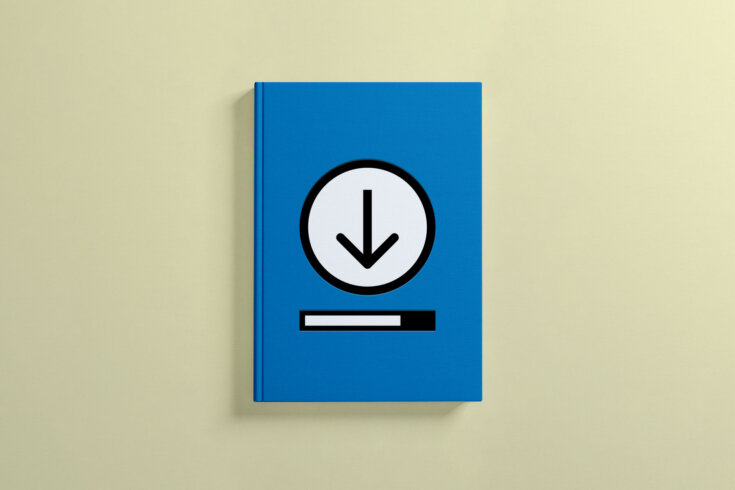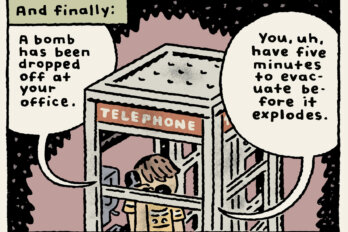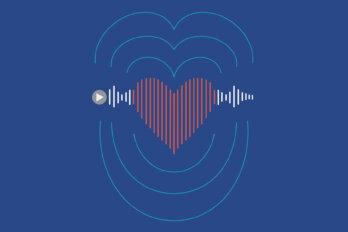On March 24, the Internet Archive lost the copyright lawsuit that had been brought against it by four major publishers. The group—which comprised Hachette, HarperCollins, John Wiley & Sons, and Penguin Random House—had sued early in the pandemic, shortly after the Internet Archive opened the National Emergency Library. The NEL was described as a crisis response to a world in which teachers and students were suddenly shut out of classrooms, librarians and researchers barred from the stacks, and the public unable to access large amounts of information. Containing more than 1.4 million books, the Internet Archive’s catalogue involved taking a single physical copy of a title, digitizing it, and making it available for mass download—without authorization by the publisher and author. Prior to the pandemic, many of these books had wait lists and download limits; the NEL was a temporary suspension of those limits. The Internet Archive claimed its move was protected under the doctrine of fair use, but the court didn’t buy it.
In the literary world, the NEL was divisive from the beginning. The New Yorker sung its praises: “The National Emergency Library Is a Gift to Readers Everywhere,” read one headline. NPR also ran an admiring piece about how the NEL “lends a hand,” a position they later tempered as the criticisms began to percolate. Authors and publishers decried it as a form of piracy. The Authors Guild issued a statement saying they were “appalled” by the Internet Archive’s decision, which “trample[d] on authors’ rights by giving away their books to the world.” The publishers sued, bringing the NEL to a premature close, and three years to the day, a judge ruled in their favour. The decision’s implications, however, extend beyond the case to touch the digital rights of all libraries—and, by extension, those of authors and readers. It has a bearing on which books (and which writers) libraries deem worthy of the expense to stock in digital formats and, ultimately, how much digital information will be freely accessible.
In the three years between the NEL launch and the judgment, developments in the book world have been dramatic enough to splinter the issue along messier lines than just intellectual property rights. Book bans are exploding across the United States, jeopardizing libraries’ missions to disseminate information to the public and putting librarians on the front lines of a culture war. In New York, where I live, public libraries are facing possible budget cuts of $36 million (US). Meanwhile, corporate publishers have made various manoeuvres to prioritize capital over everything, from the attempted mega merger of Penguin Random House and Simon & Schuster to the three-month HarperCollins strike, where management balked at workers demanding living wages. And that’s in the past year alone. In this context, the Internet Archive suit looks very different: what was spun as a means of protecting authors’ incomes seems more like protecting market share.
Ostensibly, publishers and libraries ought to be on the same side: libraries aim to advance learning by providing free and open access to information; publishing literally means to disseminate to the public. Big publishers suing a digital library for furthering this common mission—during an unprecedented assault on libraries’ purpose and function—is a weird look. It’s also unclear what it actually does for writers. Most authors—some estimates say up to 70 percent—don’t earn royalties beyond their book advances and will never have the luxury of worrying about income from the sale of their works in digital formats. The funds under dispute, by and large, go straight back to the publishers.
This situation leaves writers awkwardly caught in the middle. Supporting libraries isn’t just an abstract feel-good principle: it can also have a material effect on a book’s fate. Libraries feature titles, offer programming, and choose how many copies to order. At the same time, writing is a financially precarious enterprise. The prospect of a library buying one copy of your book, scanning it, and lending it out ad infinitum is, admittedly, horrifying. But the Internet Archive decision doesn’t just prevent that outcome—it may also affect libraries’ rights to lend single scanned copies of books that they have already purchased.
Notably, authors’ positions on the issue have diversified since the initial NEL announcement. There are those who still see it as cut-and-dried theft. “We are thrilled by the decision in the Internet Archive/Open Library lawsuit,” tweeted the Authors Guild in the wake of last month’s decision. But in September 2022, more than 1,000 writers had signed an open letter asking publishers and distributors to, among other things, “end lawsuits aimed at intimidating libraries and diminishing their role in society.” The signatories included Neil Gaiman, Hanif Abdurraqib, Lilly Wachowski, and Chuck Wendig—who explicitly recanted his earlier position in which he had described the NEL as “piracy.”
The Internet Archive lawsuit challenged a concept called “controlled digital lending.” A 2018 white paper characterized controlled digital lending as a way for libraries to circulate a digitized title instead of a physical one while still respecting copyright law. Say a library buys five physical copies of a book and chooses to digitize one of them. Then if a patron signs out that digitized version, the library can only circulate four print copies at once. The total must be kept to five, regardless of the format. This practice, too, is controversial and has been explicitly denounced by the National Writers Union, though one academic study has suggested that digitization could actually boost sales by allowing more readers to discover books and spread the word.
Unlike individual book buyers, libraries don’t “own” e-books but instead purchase the right to loan them out, which usually lasts for a fixed period before it requires renewal. This means that e-books become much more expensive for libraries than print copies, and librarians have to be judicious about the ones they choose to buy. If you have the budget to pay for only a certain number of e-books, it makes sense to default to the blockbuster titles that patrons want to read so you get the most bang for your buck. While this does technically serve writers’ interests, it also skews the odds in favour of a small group of authors whose work has proven sales mettle. As so many parts of the book business can, this system heightens the risk of neglecting mid-list titles, debuts, and books by marginalized writers.
It’s been difficult, while following this case, to pin down my sympathies. As an author, I obviously have skin in the game. I’ve sold two books, one of which will almost certainly never earn out. But I never saw more units move at once than when the e-book was on sale for $1.99 (US). I didn’t see a dime of it, of course. But the lesson seemed very clear: put the book in an accessible format and it will sell. Restrict it and it will reach fewer readers. This is the contradiction I can’t resolve, even when I want to join fellow authors who condemn digitization—that a wider, more accessible range of formats isn’t just better for readers, but it’s also better for sales and therefore better for writers. That’s not a fight it makes sense to pick with a library. If anyone should get an earful about it, it’s our publishers.





